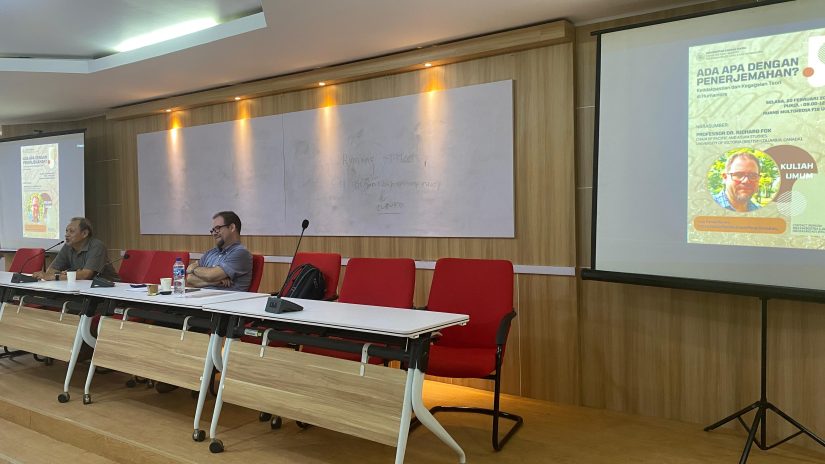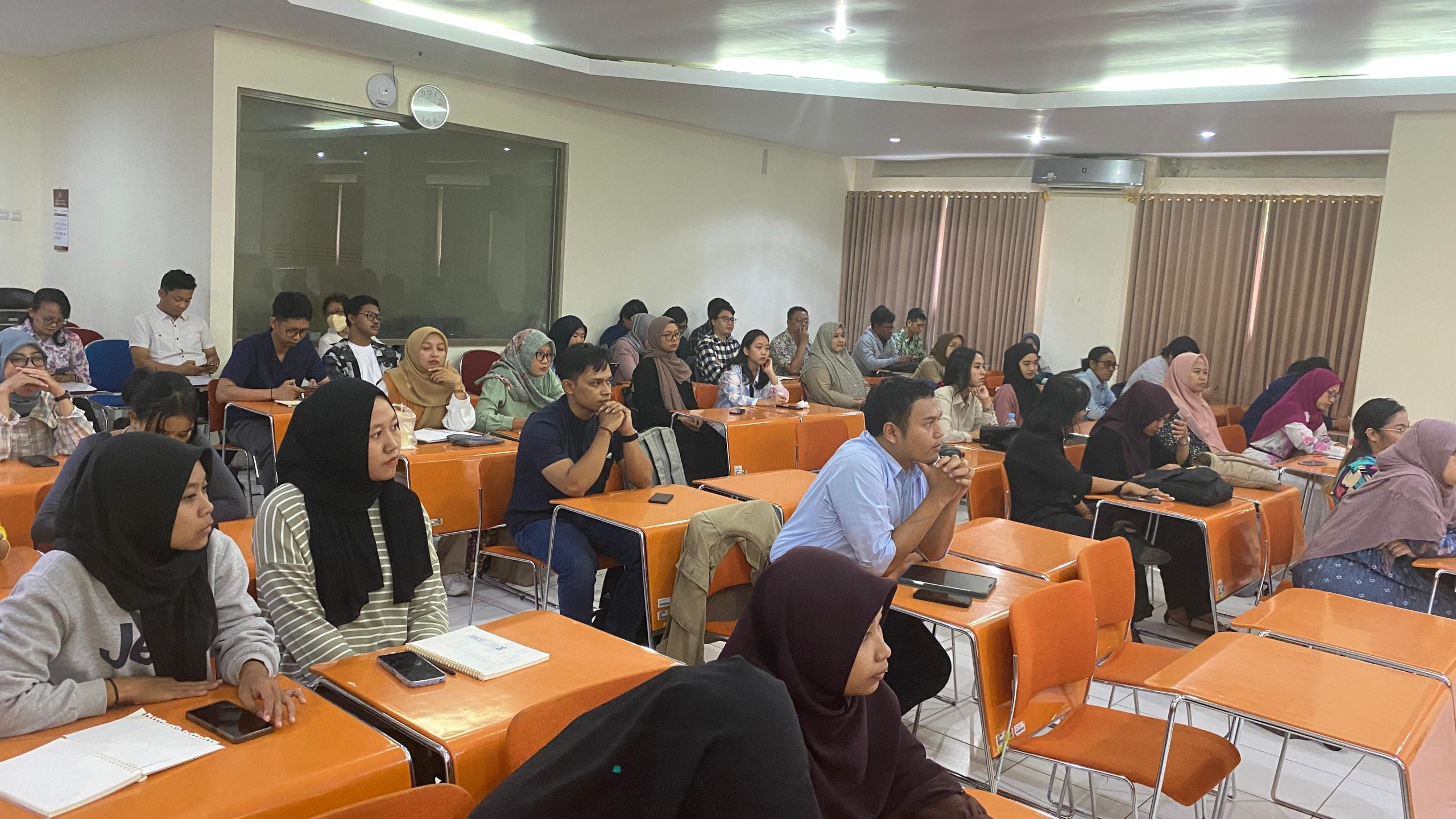
SDG 4: Quality education | SDGs 4: Education | SDG 8: Decent work and economic growth | SDGs 8: Culture | SDG 11: Sustainable cities and communities | SDGs 11: Adaptable | SDG 16: Peace, justice, and strong institutions | SDGs 16: Education | SDG 17: Partnerships for the goals | SDGs 17: Fostering Innovation
The title of this Public Lecture succeeded in attracting the attention of students from the Faculty of Cultural Sciences, Gadjah Mada University who were interested in concentrating on translation to attend the Multimedia Room on the 2nd floor of the Margono Building on Tuesday 20th of February 2024. Students from various levels and classes as well as lecturers filled the room from 9 am to gain new knowledge about translation from extraordinary sources in their field. The resource person is the Head of Pacific and Asian Students from the University of Victoria (British Columbia, Canada). Before presenting his material, he expressed his deepest gratitude to the Faculty of Cultural Sciences for supporting his research and to the students who were willing to take the time to attend the general lecture.

The material opened by explaining the meaning of translation so that public lecture participants knew the basic knowledge first before discussing translation and its problems in more depth. The use of differentiation in each concept of religion and atma was one of the problems in translation where there might be a language transformation adapted from the old concept to the new constitution. On the issue of religion and atma, there were a number of terms and other languages that were trapped in language transformation efforts. The presenter delivered the material in a way that was easy to understand, namely by relating it to examples found in everyday life based on the presenter’s personal experience. From the presentation given, he concluded that the use of linguistics, especially in the field of translation, could not be separated from concepts in everyday life.
Prof. Dr. Faruk HT., moderator at this public lecture, closed by providing a simpler conclusion that there were three important points that could be noted. First, translation as a crossing of meaning. This does not only apply to interlanguage translations but also between languages, for example between one group and another. Second, the concept of metaphor is conveying something with another meaning. This meaning can also be reversed, that is, conveying the meaning with a different name or sign. Third, meaning is a fluid process that can change from one place to another, from one case to another, such as in the case of religion and atma. Finally, the question and answer session was led by a different moderator, namely Dr. Arsanti Wulandari, M. Hum.

